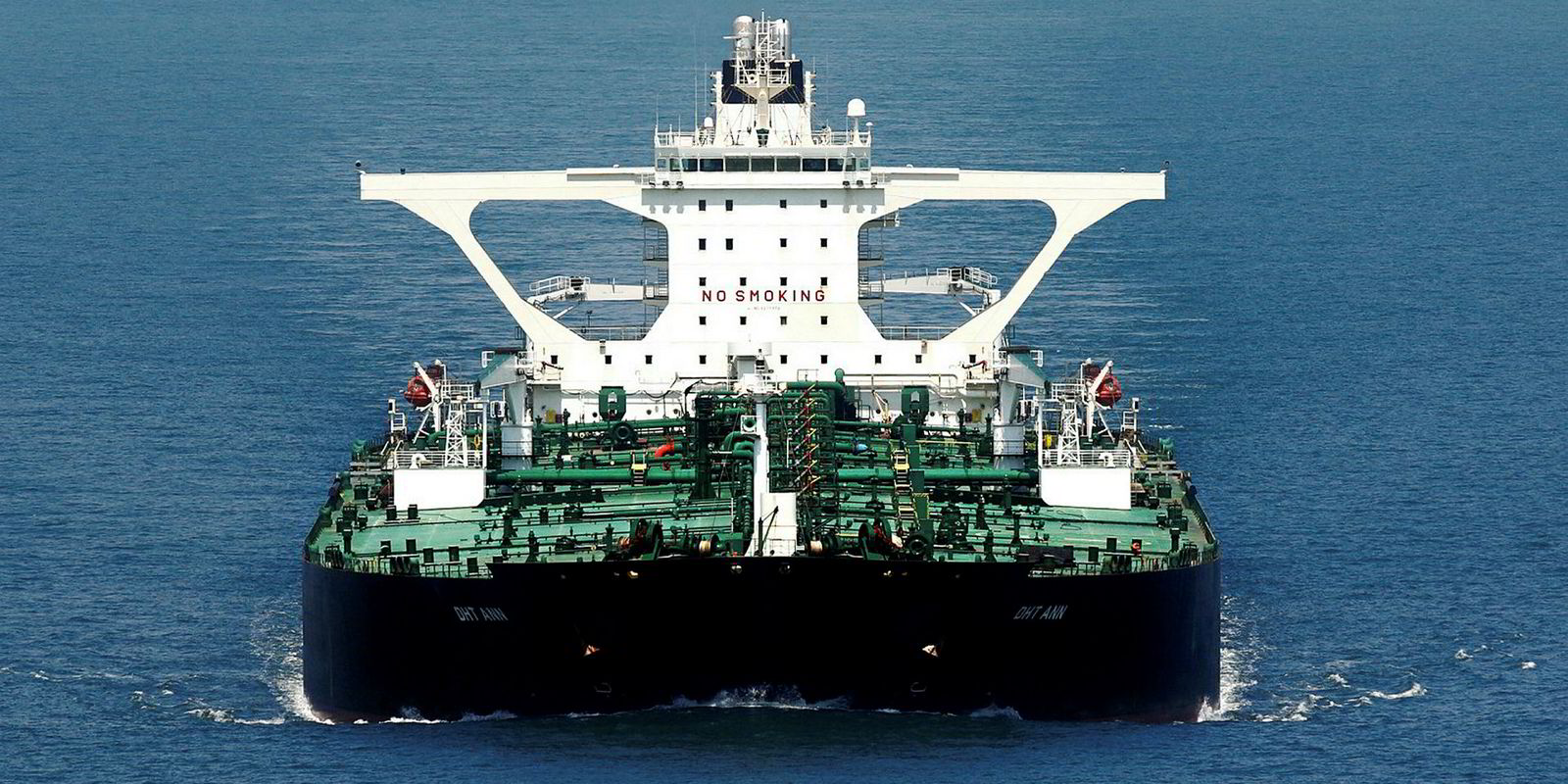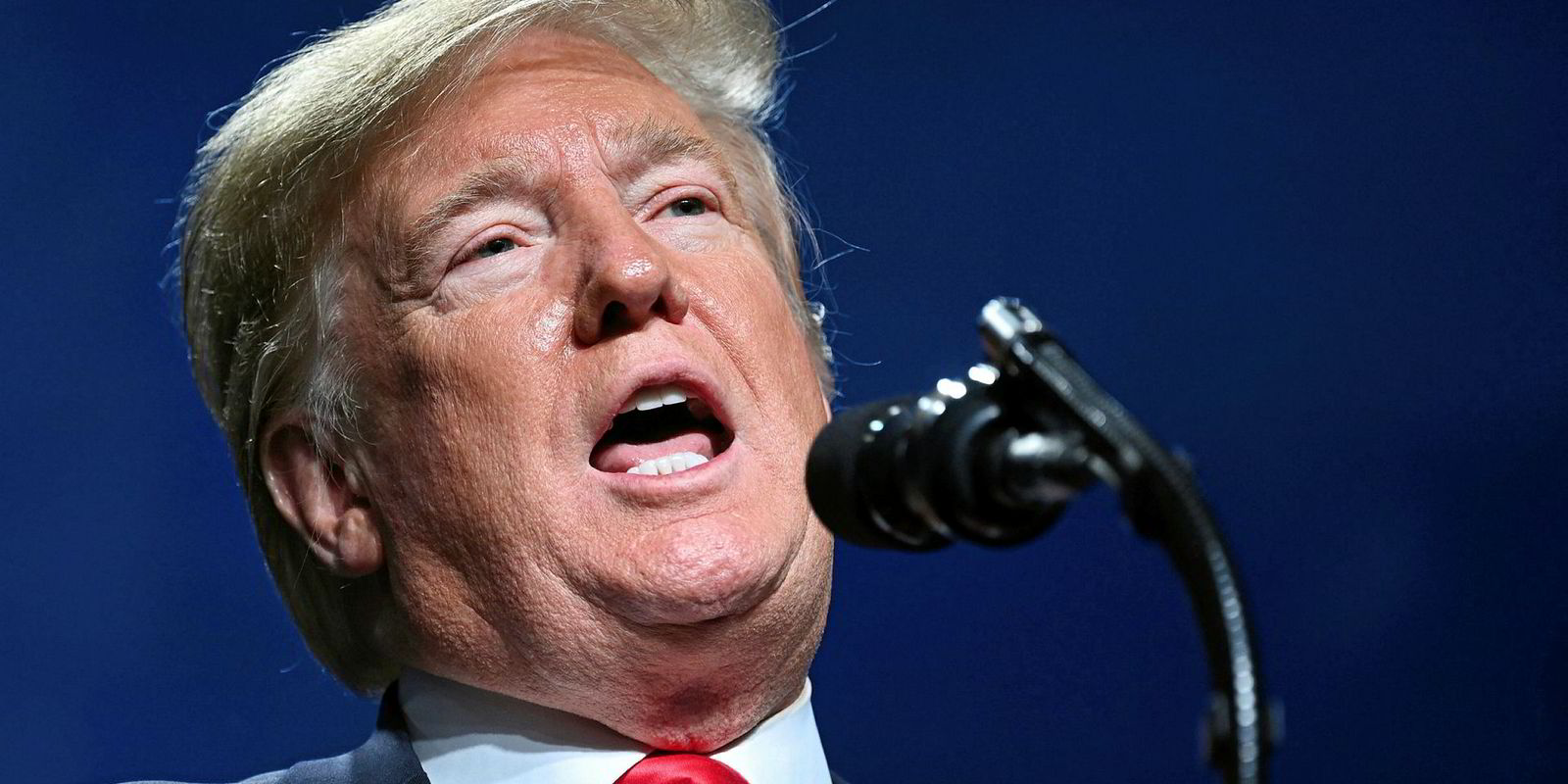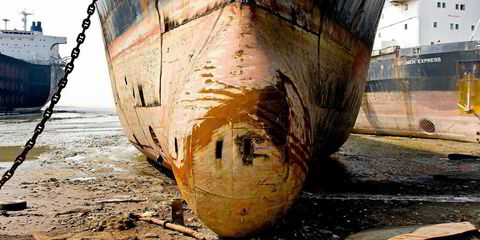Monday’s decision by the US to end Iran sanction waivers has come as a complete surprise, according to one tanker analyst in Singapore.
“No one was really expecting this, but then unpredictability has become the ‘new normal’ in Washington,” says Ralph Leszczynski, Banchero Costa’s head of research in Singapore.
“This is a totally unilateral decision by the US, which will lead to higher oil prices globally and will infuriate and hurt the economies of pretty much everyone.”
Leszczynski says it would have been a relatively neutral move on oil prices and on shipping if the forced reduction in oil shipments from Iran would have been compensated by an at least equal increase in oil production and exports from Saudi Arabia and/or other Middle Eastern countries.

“However, this is unlikely, with the Saudis being evasive on this and avoiding any promise of increasing output,” he told TradeWinds.
“The Saudis have limited spare production capacity, and will be probably try to test how far up they can push prices.”
A silver lining for tankers?
But Clarksons Platou Securities said the move was "positive for tankers".
In short we believe this is bullish for freight rates as it is expected to remove Iranian tonnage from the market and mean that cargoes from elsewhere replace Iranian volumes, using non-Iranian tonnage, therefore tightening the market supply/demand balance
Clarksons Platou Securities
"In short we believe this is bullish for freight rates as it is expected to remove Iranian tonnage from the market and mean that cargoes from elsewhere replace Iranian volumes, using non-Iranian tonnage, therefore tightening the market supply/demand balance," it said in a note.
The firm, which is the investment banking arm of shipbroker Clarksons, pointed to comments by Secretary of State Mike Pompeo that Saudi Arabia and the UAE have committed to ensure oil supply in the market.
Trump tweet
And Clarksons Platou cited a tweet by US President Donald Trump as saying: "Saudi Arabia and others in Opec will more than make up the oil flow difference in our now full sanctions on Iranian oil."
Clarksons Platou said: "We believe the US would not go ahead with full sanctions unless they have a deal from Saudi Arabia that the Saudis will supply the shortfall from Iran, and most likely increase it to limit the oil price increase.
"These commitments are likely to remain private, in our view, and official statements from Opec are likely to be vague for now."
According to the IEA, spare capacity in Saudi Arabia and the UAE is 2.5 million barrels per day higher than current output.
Clarksons Platou calculates that a net 1 million barrels per day reduction to Iranian exports could reduce the demand for 25 of Iran's VLCCs, which equates to 1.4% of the global fleet.
This could lift rates for the rest of the fleet by $10,000 per day.
Arctic Securities said the US will step up pressure on Opec to reverse supply cuts but will likely find it a much tougher sell than last year.
It believes the US action will widen the supply deficit further just as demand worries are fading.
And it said any significant change from Saudi Arabia is unlikely before the June Opec meeting.
Bad timing
Leszczynski said the decision has been made worse by its timing, with sanctions already on Venezuela and there is a deteriorating security situation in Libya with Haftar’s offensive on Tripoli.
“Hence we also have less export from Venezuela and likely to see a decline from Libya as well,” he said.
Leszczynski said some countries, such as China, will still try to continue to import at least some oil from Iran, but volumes are almost certainly going to be further curtailed from current levels.
This move is likely to result in higher oil prices and lower oil trade volumes in the second half of this years, which can only be seen as negative for tanker shipping
Ralph Leszczynski
“Therefore, this move is likely to result in higher oil prices and lower oil trade volumes in the second half of this years, which can only be seen as negative for tanker shipping,” he said.
Leszczynski said the most dangerous part is: what will Iran do if pushed against a wall?
“Some government figures in Iran have already threatened to block the Hormuz Straits if the US go ahead with full restrictions on Iranian exports,” he said.
A fifth of the world’s oil shipments pass through the Straits of Hormuz.
“A blockade of the Straits of Hormuz, which will affect shipping from Iraq, Kuwait and Saudi, or even worse an actual war between Iran and Saudi, would be a disaster for tankers,” he said.





